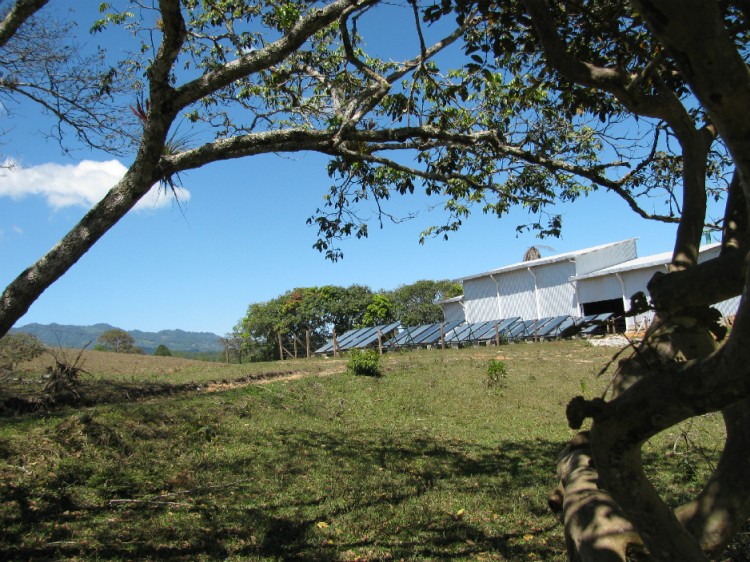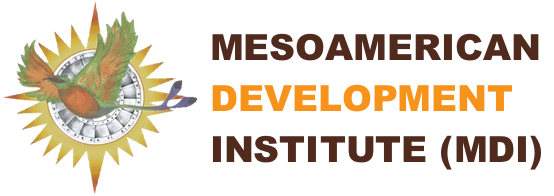
MDI and Cooperative COMISUYL launch world’s first coffee processing center featuring industrial coffee drying with clean technology
Key to achieving carbon-neutral processing is the ability to industrially dry coffee using 100% renewable energy. Industrial drying using hybrid solar/biofuel energy began with our pilot with the 2011/2012 harvest. The scale up phase of the project begins with the 2021/2022 season with the operation of a new carbon-neutral processing facility to serve the Yoro Biological Corridor.
The hybrid drying system uses solar and biomass (coffee husks) and electricity generated by Jatropha oil produced by a local farmers with equipment provided by MDI. The facility has also served as a hands-on training center for the use of off-grid processing for local youth, as well as an orientation site for loan officers of Banhcafe who are learning from this first example of the use of Central American Markets for Biodiversity (CAMBio) financing.
CAMBio works to main stream biodiversity conservation and sustainable use within enterprise development.
Carbon-neutral processing infrastructure linked with land-sparing Integrated Open Canopy™ allows for high-value carbon offsets to be offered though the program to transition to coffee production and processing in harmony with threatened national parks in the coffee regions of the Yoro Biological Corridor in Honduras.
Try The Sustainable Coffee Created From The Mesoamerican Development Institute Research
- It is the first coffee to be industrially dried using 100% renewable energy technology.
- Eliminates entirely the use of fuelwood in industrial drying.
- Solar/hybrid drying is the key step in achieving carbon-neutral processing.
Donate To the Research!
Your Funding Helps with:
- Increasing sustainability in the coffee industry using innovative clean energy technology and forest-friendly farming methods.
- Helping independent farmer organizations by providing economic security, valuable training and better job opportunities.
- Supporting women in important management positions in Central America.




